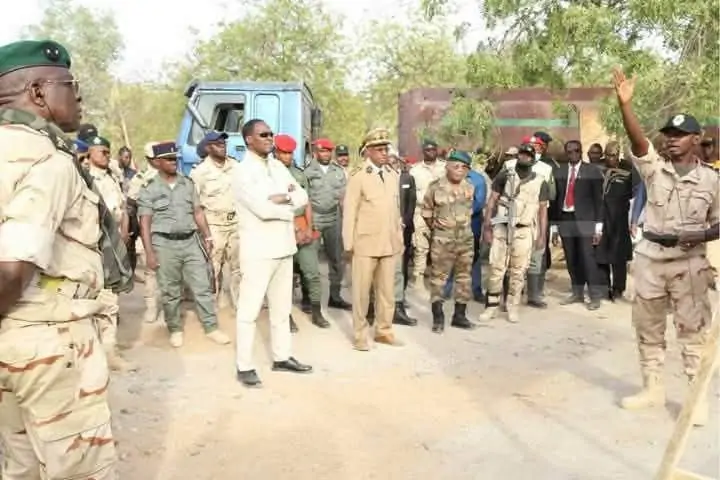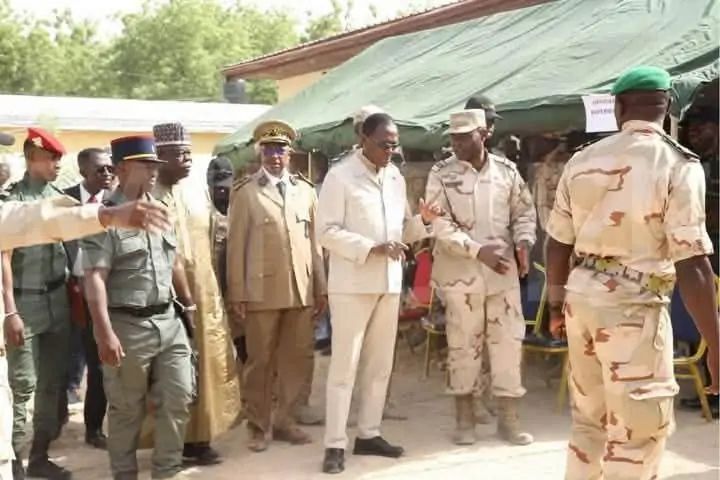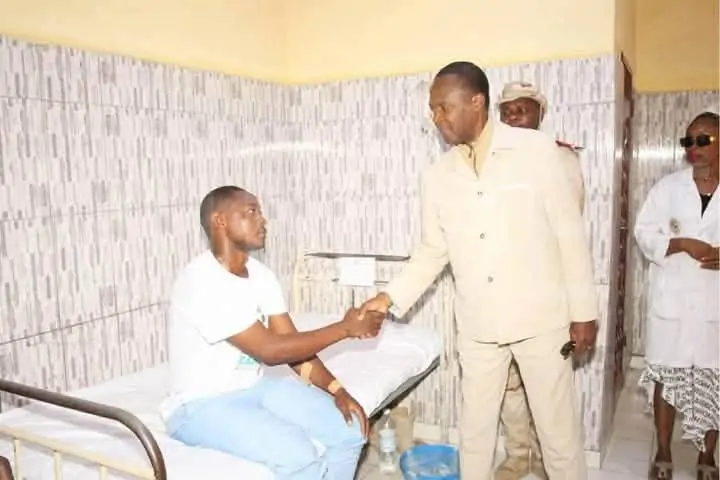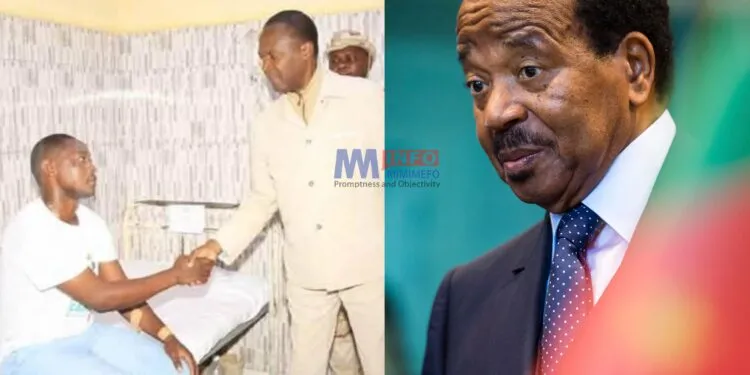It is exactly two weeks after a deadly Boko Haram attack killed at least 12 Cameroonian soldiers in Wulgo, near the Nigerian border. The attack which occured on the night of March 24-25, 2025 also left many wounded. However, President Paul Biya remains silent, publicly, at least.
While the Minister Delegate at the Presidency in charge of Defence, Joseph Beti Assomo, visited wounded soldiers on April 4 as Biya’s envoy, the President himself has made no direct statement on the attack. Instead, he has continued to post on social media about unrelated topics, while the nation mourns its fallen heroes.
The Minister’s visit, though welcomed, is seen by many as insufficient without leadership from the Commander-in-Chief himself. “Beti Assomo au chevet des militaires blessés,” national headlines read, detailing the Defence Minister’s efforts to comfort the wounded. Yet, the absence of Biya at their bedside—and his silence in official channels—has not gone unnoticed.
Posthumous Honors, But No Presidential Words
According to some media outlets, Biya has posthumously honored the 12 soldiers killed in Wulgo. However, this gesture was made without a formal public address or declaration from the presidency. The lack of transparency surrounding these honors has only added to the confusion and criticism. “How can a nation grieve when its leader refuses to speak?” asked one military family member who wished to remain anonymous. “We need more than medals; we need recognition, we need leadership.”



Contrast with the Past
This silence is a complete departure from Biya’s swift response in 2017, when fewer soldiers were killed in Manyu. At that time, he returned from a foreign trip to personally address the nation and reassure the military. Today, with the stakes arguably higher, Biya has not even made a televised statement. Analysts are calling it a troubling sign of detachment at a time when national unity is critical.
Critics Speak Out
Voices from civil society and opposition parties have been unrelenting. Barrister Michèle Ndoki, leader of Les Bâtisseurs de la Nation, stated, “We must honor their memory not only with mourning but with action. We need to demand accountability, better leadership, and a real commitment to securing our nation.”
Maurice Kamto, president of the CRM party, also criticized the military high command and political leadership for failing to protect soldiers or address systemic issues weakening national defense. “It is time for the political authorities to come up with appropriate solutions,” Kamto said.
National Disrespect or Strategic Deflection?
President Biya’s silence continues to raise questions about his leadership style and priorities. Is it a calculated strategy to avoid backlash, or a sign of indifference? Either way, many Cameroonians are reading it as a profound disrespect toward the military—a group Biya has long relied on to maintain power.
A former army officer, speaking on condition of anonymity, said, “Soldiers are dying, and their Commander-in-Chief has not spoken a word. That sends a message, and not a good one.”
As the wounds of Wulgo are still fresh, so too is the national sense of abandonment. Leadership during a time of mourning is not just ceremonial—it is essential. And right now, that leadership appears to be missing.



